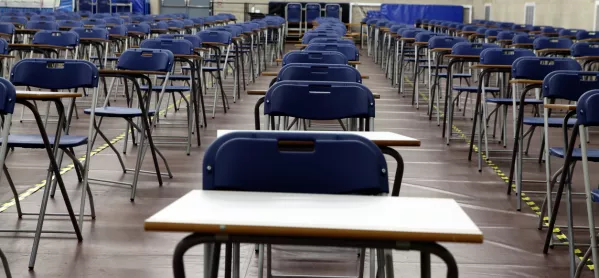The number of pupils entering GCSE subjects needed for the English Baccalaureate (EBacc) is increasing but remains well short of government targets, according to a major new school survey.
The Department for Education has set the target of three-quarters of pupils being entered into the subjects needed to achieve the EBacc by 2022.
However, figures from the DfE’s own survey today show that schools expect less than half of pupils to be entered into all EBacc subjects by 2020.
And the majority of schools questioned said they expected this figure to remain roughly the same by 2021.
Quick read: EBacc GCSE entries up as other subjects decline
Opinion: ‘We must take this opportunity to consign EBacc to history’
Targets: Ofsted softens stance on schools’ EBacc progress
The government target is for 75 per cent of pupils studying subjects needed for the EBacc by 2022 and 90 per cent of pupils starting the GCSEs needed by 2025.
The DfE snapshot survey, carried out in winter 2018, reveals that schools estimated that 46 per cent of their pupils would be entered into the EBacc in 2018-19 and that this figure would be 48 per cent in 2019-20.
The snapshot survey also says that more than two-thirds of schools expected the figure to remain similar by 2021.
It said seven in 10 schools (69 per cent) thought the proportion entered into the EBacc would remain about the same, 23 per cent of schools said there would be an increase and 8 per cent thought there would be a decrease.
The survey questioned 836 school leaders and more than 1,000 classroom teachers.
Earlier DfE figures show around 239,400 pupils being entered into the EBacc combination of exams in 2018, around 46 per cent of those completing key stage 4.
In 2017, 38.2 per cent of pupils from state-funded schools were entered into the EBacc subjects.
Last week a report by the think tank EDSK called for the EBacc to be scrapped.
Former DfE adviser Tom Richmond, the author of the report, said the EBacc had helped to drive a big fall in the number of pupils taking GCSEs in arts subjects which are not included in it.
The EBacc comprises GCSEs in English language and English literature; maths; either history or geography; a language; and at least two of the three single sciences or combined science.
There has also been controversy over Ofsted’s inclusion of the EBacc in its plans for a new inspection framework.
Ofsted’s draft inspection framework had said that its inspectors would look at what schools are doing to prepare for the government’s EBacc targets to be achieved.
This was criticised by school leaders including the Association of School and College Leaders, who said there were not enough language teachers in the system for this to be achieved.
When Ofsted published its final framework, its director of corporate strategy Chris Jones said that schools would be not be judged against the government’s EBacc targets as it was a national expectation rather than a school-level target.
The DfE has been contacted for comment.





